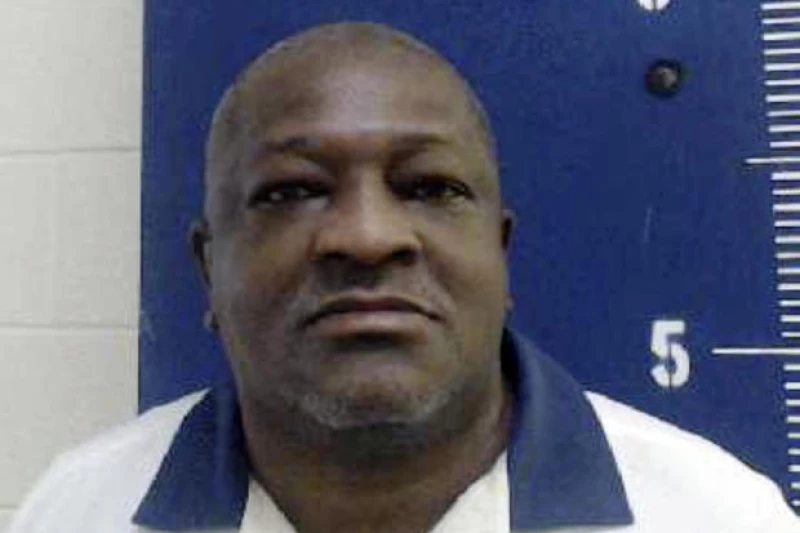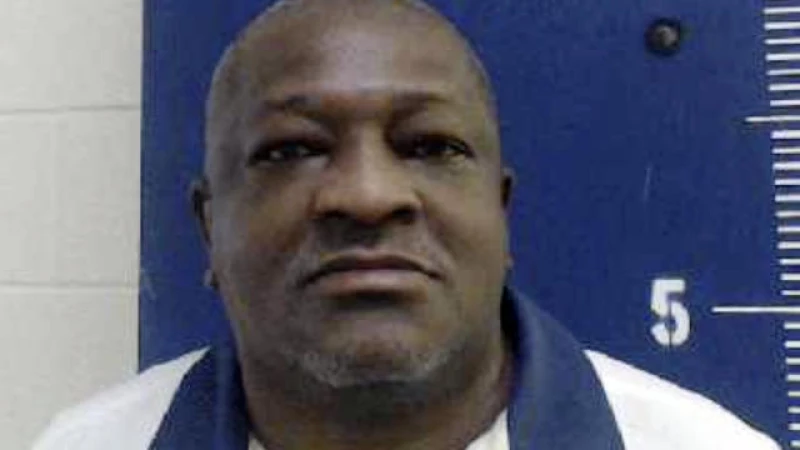Georgia Man Faces Execution for Killing Former Girlfriend
A Georgia man convicted of killing his former girlfriend three decades ago is scheduled to be put to death Wednesday in what would be the state's first execution since January 2020.
Willie James Pye, 59, was convicted of murder and other crimes in the November 1993 killing of Alicia Lynn Yarbrough. The planned lethal injection using the sedative pentobarbital is set to happen at the state prison in Jackson.

In their request for clemency, Pye's lawyers called the 1996 trial "a shocking relic of the past" and said the local public defender system had severe shortcomings in the 1990s.
Those failures of the local justice system had the effect of "turning accused defendants into convicted felons with all the efficiency of Henry Ford's assembly line," Pye's defense lawyers wrote in their clemency application.
"Had defense counsel not abdicated his role, the jurors would have learned that Mr. Pye is intellectually disabled and has an IQ of 68," they said, citing the findings of the state's expert.
Defendants who are intellectually disabled are ineligible for execution. Experts said Pye meets the criteria, but that the burden of proof in Georgia was too high to reach, his lawyers argued.
"The challenges he faced from birth — profound poverty, neglect, constant violence and chaos in his family home — foreclosed the possibility of healthy development," they wrote. "This is precisely the kind of evidence that supports a life sentence verdict."
Despite these arguments, the Georgia Parole Board rejected Pye's bid for clemency after a closed-door meeting on Tuesday.
Recounting the Murder
Pye and Yarbrough were in an on-and-off romantic relationship, but at the time of the murder, Yarbrough was living with another man. Pye, along with Chester Adams and a 15-year-old accomplice, had planned to rob the man Yarbrough was living with. They purchased a handgun and then went to a party in a nearby town, according to prosecutors.
After leaving the party and arriving at Yarbrough's house, they found her alone with her baby. The trio forced their way into the house, stole items from Yarbrough, and kidnapped her, leaving the baby behind, as per prosecutors.
They then took Yarbrough to a motel where she was raped before being taken in the car. Eventually, they stopped on a dirt road where Pye shot Yarbrough three times after ordering her to lie face down, according to court documents.
On November 17, 1993, Yarbrough's body was discovered shortly after her murder. Pye, Adams, and a teenager were swiftly taken into custody. While Pye and Adams maintained their innocence, the teenager confessed and pointed fingers at the other two.
After reaching a plea deal with prosecutors, the teenager became the key witness in Pye's trial. In June 1996, a jury convicted Pye of murder, kidnapping, armed robbery, rape, and burglary, sentencing him to death.
Extensive history of legal strategies
Pye's legal team contended in court documents that the prosecution heavily relied on the teenager's testimony, which later appeared inconsistent. According to court filings, these inconsistencies, along with Pye's own trial testimony, suggested that Yarbrough willingly left the residence to exchange sex for drugs at the motel.
Additionally, Pye's lawyers argued in court filings that their client grew up in dire poverty in a household lacking basic amenities like indoor plumbing, adequate food, shoes, or clothing. They described his childhood as marked by neglect and abuse from frequently intoxicated family members.
The defense further asserted that Pye suffered from frontal lobe brain damage, potentially stemming from fetal alcohol syndrome, impairing his ability to plan and control impulses.
Throughout the legal proceedings, Pye's defense team consistently argued that he deserved a resentencing due to the lack of adequate preparation by his trial lawyer during the sentencing phase. They contended that his original attorney failed to conduct a thorough investigation into Pye's "life, background, physical, and psychiatric health," resulting in a failure to present crucial mitigating evidence to the jury during the sentencing phase.
Initially, a federal judge dismissed these arguments, but in April 2021, a three-judge panel of the 11th U.S. Circuit Court of Appeals sided with Pye's lawyers. However, the case underwent a rehearing by the full federal appeals court, leading to the overturning of the panel ruling in October 2022.
Meanwhile, Pye's co-defendant, Adams, who is now 55 years old, had pleaded guilty in April 1997 to multiple charges including malice murder, kidnapping with bodily injury, armed robbery, rape, and aggravated sodomy. Adams received five consecutive life prison sentences and is currently serving time behind bars.







